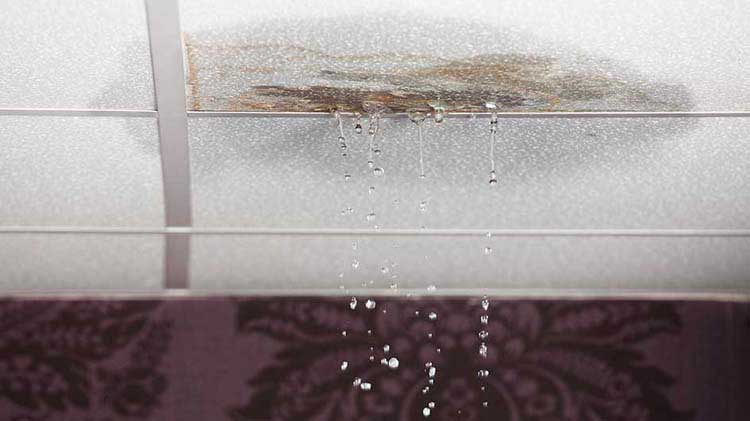Your House's Principal Typical Triggers of Leak Problems: Thorough Investigation
Your House's Principal Typical Triggers of Leak Problems: Thorough Investigation
Blog Article
Have you been on the lookout for related information on Common Water Leaks In House?

Leakages not just create waste of water yet can additionally create unnecessary damages to your residence and also advertise undesirable natural development. Water leaks might go unnoticed given that many of the pipework in our house is concealed. By looking as well as understanding for everyday situations that cause leakages, you can shield your residence from future leakages as well as unnecessary damage. Today, we will look at 6 leak triggers that may be causing your pipes to leak.
Encroaching origins
A lot of water leaks start outside the house instead than inside it. You may observe damp spots or sinkholes in your backyard, as well as that could indicate that tree origins are invading water lines triggering water to leak out.
Rusty water supply
This might be the reason of staining or bending on your water pipelines. If our plumbing system is old, think about changing the pipelines given that they are at a greater risk of corrosion than the more recent versions.
Faulty Pipeline Joints
The factor at which your pipelines connect is regularly the weakest link in the waterline. Pipe joints can degrade in time, causing water leakages. Unfortunately, most of pipeline joints are not easily visible. If you have noisy pipes that make ticking or banging noises, especially when the hot water is switched on, your pipe joints are most likely under a great deal of pressure. It is recommended to have your plumber examine your system yearly.
Instant temperature changes.
Severe temperature adjustments in our pipelines can cause them to broaden as well as get all of a sudden. This development and contraction may cause splits in the pipelines, particularly if the temperature level are below freezing. If you kept an eye on how your plumbing functions, it would certainly be best. The existence of the formerly mentioned scenarios often shows a high risk.
Poor Water Connectors
At times, a leakage can be caused by loose pipes and pipes that supply your appliances. In situation of a water links leak, you may discover water running directly from the supply line or pools around your devices.
Blocked Drains
Blocked drains might be annoying and inconveniencing, but they can in some cases wind up creating an overflow resulting in rupture pipelines. Keep eliminating any type of products that might go down your drains pipes that could block them to stay clear of such troubles.
All the above are root causes of leaks yet not all water leaks result from plumbing leakages; some leaks might originate from roofing system leaks. All leakages need to be fixed promptly to avoid water damage.
Leaks not just trigger waste of water yet can also cause unnecessary damages to your residence and also advertise unwanted organic development. By recognizing and looking for daily circumstances that create leakages, you can secure your house from future leakages and also unneeded damages. Today, we will certainly look at 6 leak triggers that may be triggering your pipelines to trickle.
At times, a leakage can be created by loosened pipes and also pipelines that provide your devices. In case of a water links leakage, you might observe water running straight from the supply line or pools around your home appliances.
How To Check For Water Leak In Your Home
How To Check for Leaks
The average household's leaks can account for nearly 10,000 gallons of water wasted every year and ten percent of homes have leaks that waste 90 gallons or more per day. Common types of leaks found in the home are worn toilet flappers, dripping faucets, and other leaking valves. These types of leaks are often easy to fix, requiring only a few tools and hardware that can pay for themselves in water savings. Fixing easily corrected household water leaks can save homeowners about 10 percent on their water bills.
To check for leaks in your home, you first need to determine whether you're wasting water and then identify the source of the leak. Here are some tips for finding leaks:
Take a look at your water usage during a colder month, such as January or February. If a family of four exceeds 12,000 gallons per month, there are serious leaks.
Check your water meter before and after a two-hour period when no water is being used. If the meter changes at all, you probably have a leak.
Identify toilet leaks by placing a drop of food coloring in the toilet tank. If any color shows up in the bowl after 10 minutes, you have a leak. (Be sure to flush immediately after the experiment to avoid staining the tank.)
Examine faucet gaskets and pipe fittings for any water on the outside of the pipe to check for surface leaks.
Undetected water leaks can happen without the home or business owner even realizing. If you suspect a water leak, but not able to find the source. It is time to contact a professional water leak detection service, The Leak Doctor.
How To Find a Water Leak In Your Home
https://www.leakdoctor.com/blog/How-To-Check-For-Water-Leak-In-Your-Home_AE197.html

Hopefully you enjoyed our section on How Fast Water Damage Can Ruin Your Home. Thanks a ton for finding the time to read our article post. Do you know another person who is fascinated about the topic? Be sure share it. Bless you for your time. Please come by our site back soon.
Overflow? We can help! Report this page